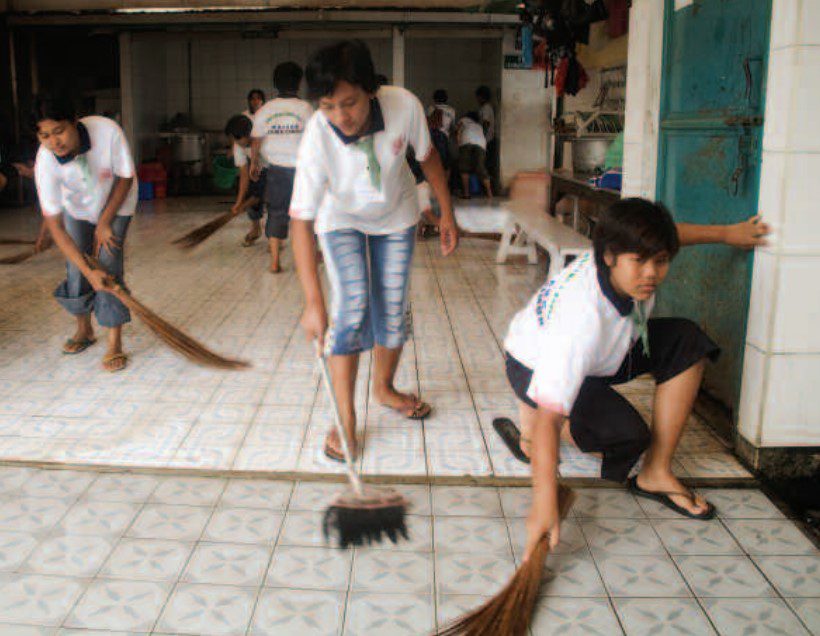
Swept Under the Rug: Abuses against Domestic Workers Around the World
Millions of women and girls around the world turn to domestic work as one of the few options available to them in order to provide for themselves and their families. Instead of guaranteeing their ability to work with dignity and free of violence, governments have systematically denied them key labor protections extended to other workers. Domestic workers, often making extraordinary sacrifices to support their families, are among the most exploited and abused workers in the world.
Abuses against domestic workers, typically taking place in private homes and hidden from the public eye, have garnered increased attention in recent years. The long list of abuses committed by employers and labor agents includes physical, psychological, and sexual abuse; forced confinement in the workplace; non-payment of wages; and excessively long working hours with no rest days. In the worst situations, women and girls are trapped in situations of forced labor or have been trafficked into forced domestic work in conditions akin to slavery.
Increased awareness has unfortunately not been matched by concerted government action. Hong Kong is one of the few places where the government guarantees equal protection under its labor laws. The norm is for governments to exclude domestic workers from these laws altogether, or to provide weaker, poorly enforced regulations that leave employers enjoying virtual impunity to exact excruciatingly long hours of work for grossly inadequate wages.
Since 2001, Human Rights Watch has conducted research on abuses against domestic workers originating from or working in El Salvador, Guatemala, Indonesia, Malaysia, Morocco, the Philippines, Saudi Arabia, Singapore, Sri Lanka, Togo, the United Arab Emirates, and the United States (see Appendix A). In over twelve different research trips and numerous follow-up trips, we have interviewed hundreds of women and girl domestic workers, government officials, employment agents, employers, activists with private nongovernmental and faith-based organizations, and representatives of international organizations.
Our extensive research reveals an alarming prevalence of abuses against domestic workers. While we interviewed workers in each country who were happy with their jobs, many more described deplorable working conditions and egregious violations of their rights that are strikingly similar across countries. Despite increasing attention and some positive steps, governments’ response has thus far been inadequate. This compendium sets out our findings with respect to the following overlapping categories: (1) principal criminal abuses common to all domestic workers; (2) principal labor abuses common to all domestic workers and exclusion from labor laws; (3) specific concerns of child domestic workers; and (4) specific concerns of migrant workers. We discuss best and worst government responses and practices, and present our recommendations for action.
To read the full report click here.
